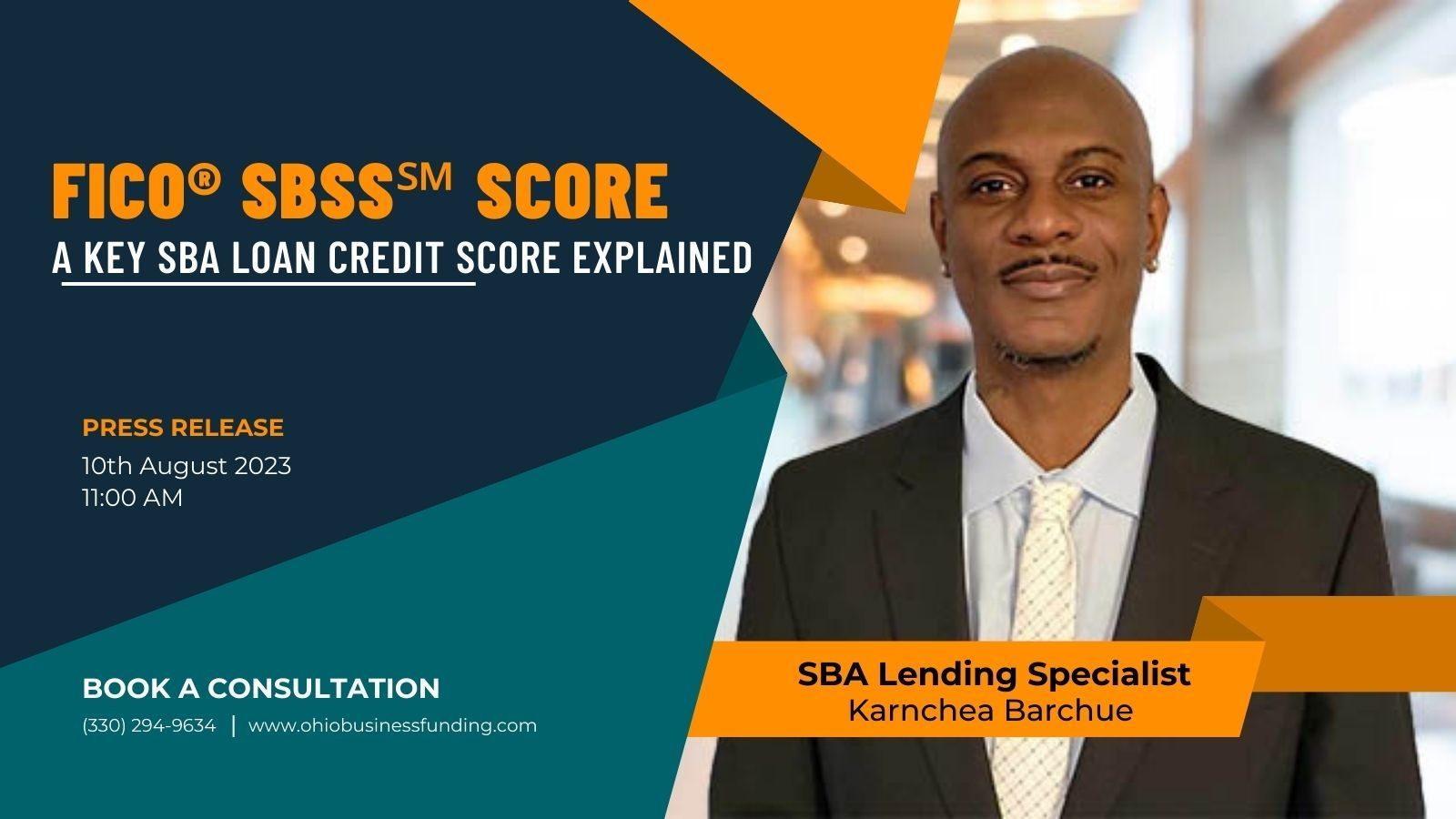FICO® SBSS℠ Score — A Key SBA Loan Credit Score Explained

There’s a FICO credit score designed just for small business: the FICO® SBSS℠ score. Banks, business credit card issuers, and other lenders may use it to help make lending decisions. The SBA (Small Business Administration) requires lenders to use this score to pre-screen borrowers for some of the SBA loans it insures. Just as your personal FICO credit scores can impact your ability to secure financing, your business FICO SBSS score can impact your ability to get small business financing.
What is the FICO SBSS Credit Score?
FICO® LiquidCredit® Small Business Scoring Service℠ (FICO® SBSS℠ score) is one of the main business credit scores lenders may use. It’s a credit score small business owners should know about if they are considering a small business loan through a traditional lender such as a bank, or certain SBA loans. But many entrepreneurs have never heard of it because it’s been hard to get your hands on it.
Banks aren’t required to disclose that they use the FICO® SBSS℠ score and FICO doesn’t sell this score to borrowers as it does with consumer scores that it sells through myFICO.com. More lenders are using it because it helps them make faster, more accurate lending decisions. This means they can make decisions in hours, not days.
What is a Good FICO SBSS Score?
The FICO SBSS score ranges between 0 to 300, with 300 being the highest score. A higher score indicates lower risk.
The U.S. Small Business Administration (SBA) requires lenders to use this score to pre-screen certain SBA 7(a) loans:
Current minimum SBSS scores:
- 7(a) Small Loans: 155
- Community Advantage: 140
- Express Bridge Loan Pilot Program: 130
If your score falls below their required threshold, it doesn’t necessarily mean your application can’t be approved. To continue, your loan application then must go through a manual approval where other factors may be taken into account.
How is the FICO SBSS Credit Score Calculated?
FICO doesn’t have any credit information, it just provides the formulas used to calculate credit scores. The information it uses to calculate this business score comes from credit reporting agencies, the lender or other data sources. SBSS models use up to four types of information.
- Consumer credit reports for the principals/guarantors of the business (up to five owners),
- Business credit reports for the business,
- Application data supplied on the loan application, and
- Business financial data
Of these, FICO says that the credit information that is most important in terms of helping predict performance are the business owner’s personal credit data followed by business bureau data, financial data, then application data.
If you have no business credit history and limited time in business, you may be able to get a passing FICO SBSS score based on stellar personal credit alone. But it helps to have strong business credit as well.
Banks and lenders can set up the SBSS model they use in different ways, putting more weight on certain information, and less on others.
For example, it can put more weight on your business credit profile or more on your personal credit history. It’s also a very “smart” business credit scoring model because it can automatically go from one business credit bureau to another, in whatever order of priority the lender prefers, until it’s able to generate a score.
So, if the lender prefers using Experian for business credit data as the default, it can pull that data from Experian data. But if that report doesn’t provide enough information, it can automatically get business credit data from Dun & Bradstreet. If there’s not enough business credit data available, it will just use the personal credit data to calculate the SBSS score, potentially along with business financials.
Currently, FICO SBSS can be calculated using consumer credit data from Experian, Equifax or Transunion as well as business credit data from Dun & Bradstreet, Experian Business or Equifax SBFE.
Application data can include business checking account balance , time as current owner and principal’s combined net worth.
Because the lender has a choice of credit bureaus to use when accessing data to create this score, your business does not have a single FICO SBSS score. In addition, it will change as information in your credit reports change.
How FICO SBSS Works
Here are some important facts to understand about this business credit score:
- FICO SBSS rank-orders small businesses by their likelihood of making payments on time. The FICO score ranges from 0 to 300. Higher scores are better in that they indicate lower risk but each lender will choose the minimum score it will accept.
- The minimum score to pass the mandatory prescreen for 7(a) Small Loans is currently 155 (as of October 1, 2020). But most SBA lenders set their minimum score at 160-165.
- The score can be calculated based upon personal and business credit history and other financial information. A strong history of business credit with timely payments to vendors and suppliers may help boost your SBSS score.
- If you have derogatory or no credit history, it can take months or even years of positive credit activity to move your SBSS score significantly higher. It’s vital to build your credit and ensure it’s healthy before you need it.
- Because businesses are not covered by Fair Credit Reporting Act protections, you can be denied business financing due to your SBSS score, and lenders are not required to notify you the score was used or provide access to your score.
Who Uses the FICO SBSS Score?
In the past, FICO has reported that the FICO SBSS score is used by over 7,500 lenders nationwide to help them make lending decisions. The latest version of FICO SBSS 7.0 built for loan amounts up to $1 million for term loans and lines of credit, and $250,000 for leasing transactions.
As mentioned earlier, certain SBA loans require this score be used to pre-screen applications. Banks will use it to pre-screen their loan applicants but they usually set their cutoff higher, typically around 160-165.
How Can I Improve my FICO SBSS Score?
Even though this score is used for small business credit decisions, personal credit is important when it comes to earning a high FICO SBSS score, so one of the most important things you can do is to review your personal credit scores and make sure yours are as strong as possible. If your business has multiple owners or others who will guarantee the loan, their credit may be checked so you’ll want to make sure you are aware of any credit problems.
Strong business credit can help, so check your business credit with Dun & Bradstreet, Experian Business and Equifax. If your business doesn’t have a D-U-N-S number, you’ll want to get one and start building business credit.
If you don’t have a business bank account, make sure you get one and use it consistently for business expenses. Your business bank account balance may impact this score, and many lenders require and review business bank statements when making small business lending decisions.
Lastly, build your business. At least two year’s time in business, strong credit and solid financials are key to securing the best small business loans and financing.
You might also like
Commercial Lending News

*** All files are subject to full underwriting & qualifications specified by each bank. There can be no assurance that any applicant will be approved and that credit will be offered.***



